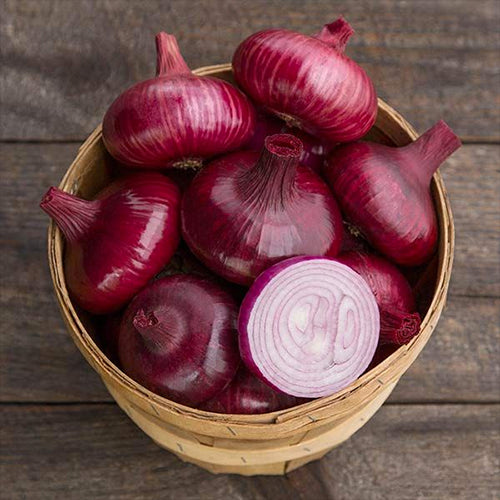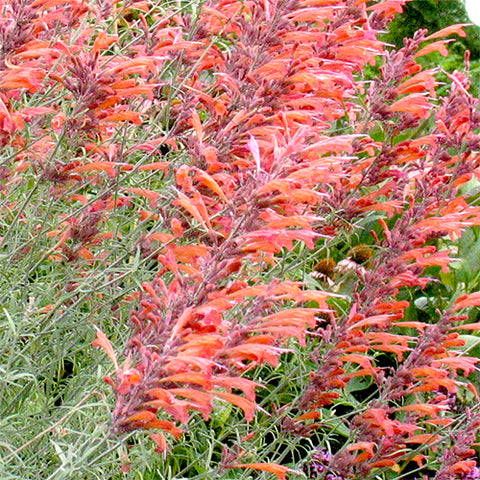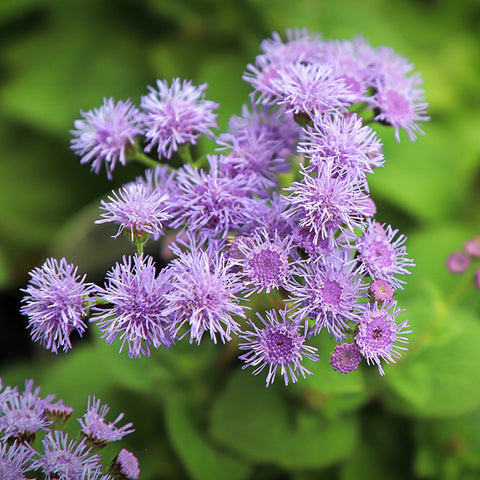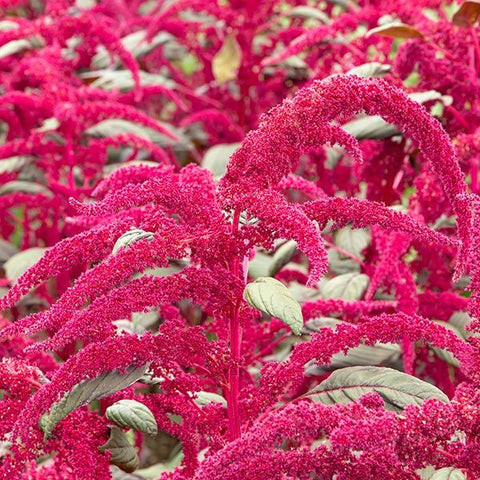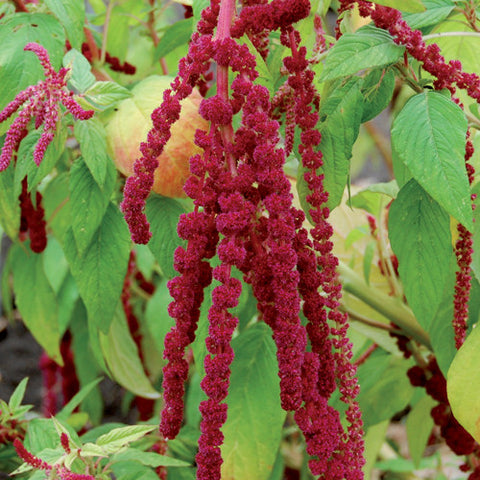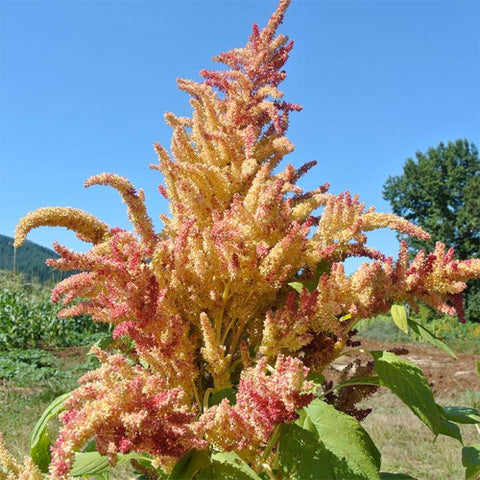Onion, Red Geneva Cipollini (Certified Organic Seeds)
$4.79
This item may be out of season or currently out of stock. Please check back.
Description: Flattened, red Cipollini-type bulbs are excellent for eating raw or cooked. Colourful!
- Long day
- Stores 4-5 months
- 2.5-3.5" bulbs
USDA Certified Organic/ Open Pollinated/ Non-GMO
Pack size: 0.44 g (1/64 oz)
Latin Name: Allium cepa
Main Uses: Culinary
Days to Maturity: 105 days
Exposure: Full sun
Certified Organic: USDA Certified Organic
Germination: 10 - 21 days, depending on soil temperature. Ideal temperature is 21º C.
Sowing indoors: Sow seeds 10 - 12 weeks before planting out date. It is preferable to start bulbing onions indoors, as opposed to direct-seeding them. Apply Sea Magic from first watering. From the second set of true leaves to time of transplanting, alternate between Sea Magic and seed-starting fertilizer (such as Evolve) once per week. Many gardeners start onion seeds in seeding trays and then transplant when the seedlings have developed 3 blades. Transplanting to a deep container yields the best results - think milk cartons but make sure to punch drainage holes.
Planting Depth: Between 1/8 & 1/4" deep.
Seed Spacing: Space seeds 1/2” apart and then thin to 4 to 6” apart.
Planting Out: Plant in well-drained fertile soil once seedlings are established and risk of frost has passed or earlier if the seedlings have been sufficiently hardened off. Harden off by gradually setting seedlings outside for a couple of hours in a protected spot the first day and then increasing the time and exposure to elements each day thereafter. By ten days, you should have worked up to leaving them outside overnight as long as the temperatures are higher than 10º C. The optimal growing temperature for onions is 13º to 25º C. Onions require lots of light to grow well, so locate in the sunniest areas of the garden. Onions require fertile soil so be sure to work in plenty of quality compost, such as Sea Soil, before planting or direct-seeding.
Plant Spacing: Space transplants 4” - 6” apart; spacing will significantly impact the size of the onion bulbs.
Outdoors: Direct seed as soon as the ground can easily be worked. Space seeds 1/2” apart and then thin to 4 to 6” apart.
Growing in Containers: Can be grown in large pots or raised boxes. Onions are very well-suited to raised beds.
Fertilizing (Containers): Add up to 30% quality compost or Sea Soil to the potting mix. Fertilize regularly with an all-purpose balanced organic fertilizer.
Watering (Containers): Water deeply when the top inch of soil feels dry to the touch. Check every day or two during very hot weather.
Growing in Mixed Planters: Not well-suited for mixed planters.
Fertilizing (Garden): Plant in a garden recently amended with plenty of compost. No further fertilizing required.
Watering (Garden): Water deeply to establish. Water mature plants weekly during hot weather.
Harvesting: Harvest onions as they reach the desired size. For full-size onions, harvest as the growing tops wither and fall over. Dig onions gently to prolong storage life. Harvest on a dry, sunny day and set the onions out in the sun for a couple of hours to dry. Then they can be cured by spreading them out in a warm, sunny spot that is protected from the hot sun and rain - a porch is ideal. When the roots have dried and are wiry, the onions are cured.
Garden Companions:
Companions plants: Broccoli, Cabbage, Carrots, Lettuce, Strawberries, Tomato, Beets, Tomatoes & Summer Savory.
Improving the flavour: Plant Onions near Cabbage, Beets, Strawberries, Leeks, Lettuce and Chamomile to improve their flavour.
Avoid: Planting Onions near Beans, Peas and Sage as they do not complement each other.
Suitability for Indoors: Not suited for indoors.

